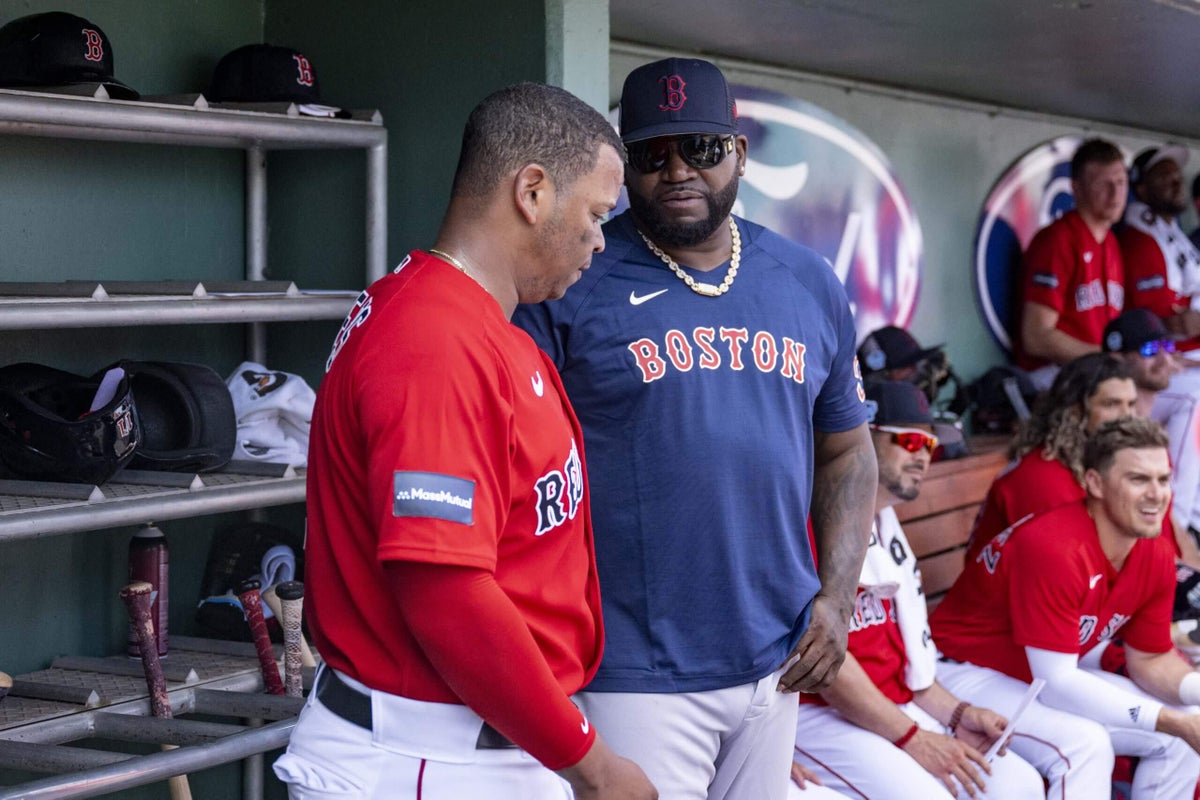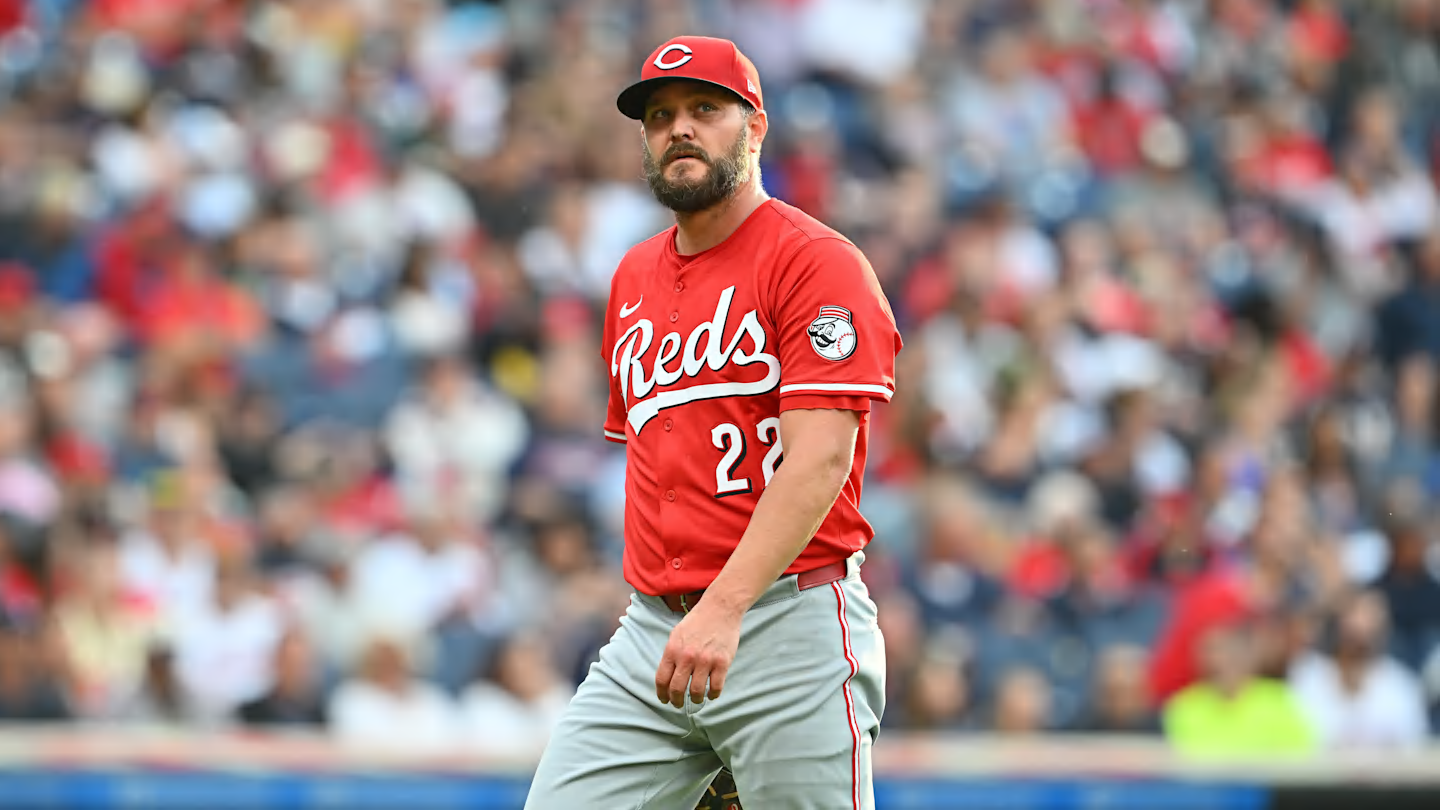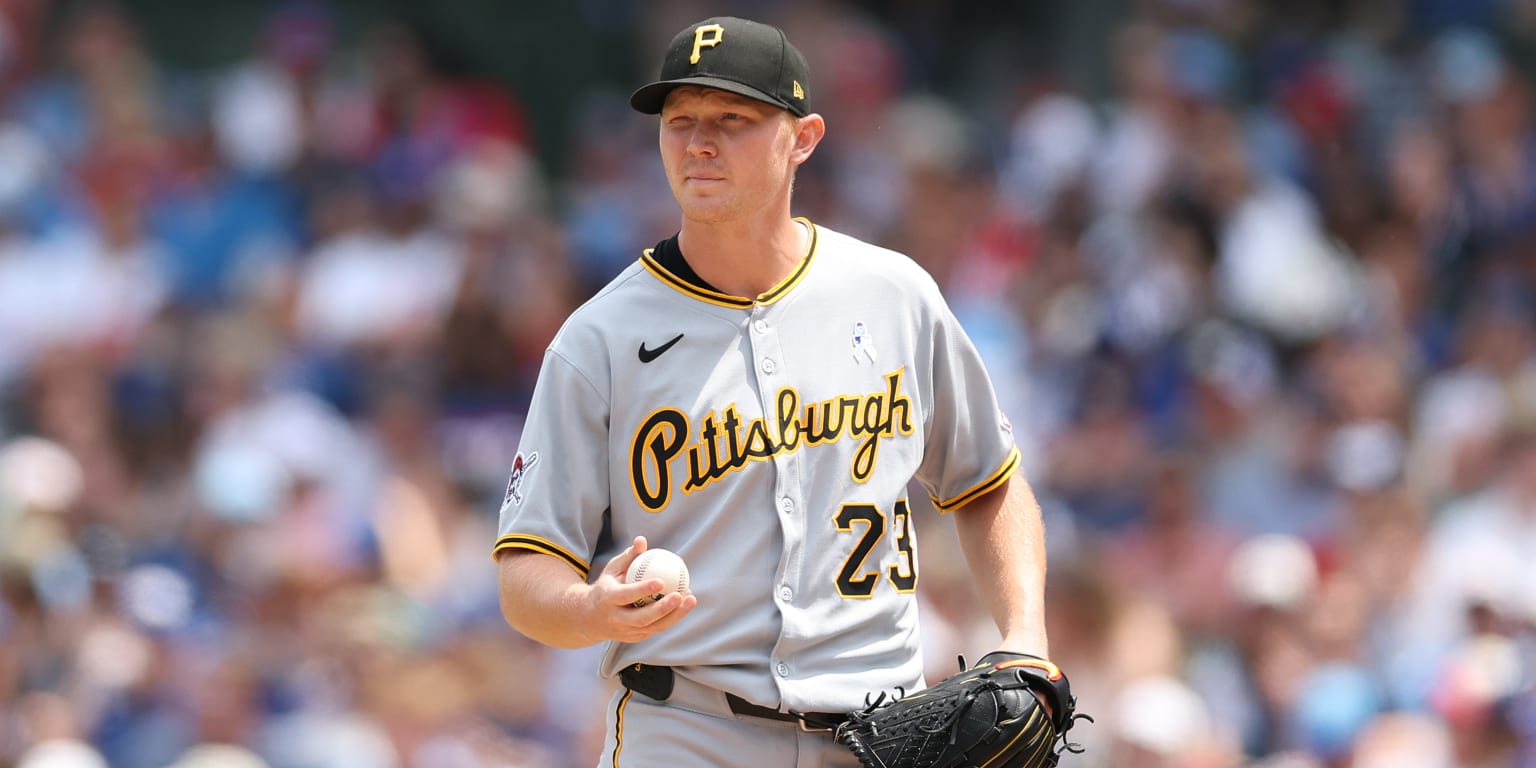
Hall of Famer David Ortiz works for the Boston Red Sox as a special assistant to the Fenway Sports Group. But he said his opinion of the Rafael Devers trade is informed more by his 14 years as a player with the Red Sox than his current role with the club.
“I played for the Red Sox a long time,” Ortiz said Monday. “You think everything with me and the Red Sox was roses and flowers? I went through some tough times also. But I was mature enough to understand and keep things internal. Even in the best families, between the best brothers, s— happens. You need to have the maturity to resolve the problems and move on.”
Advertisement
Ortiz, 49, experienced occasional turbulence in his contract negotiations with the Red Sox. Some of the squabbles went public, but he ultimately finished his career with the team. In 2017, one year after he retired, the Red Sox signed him to what they described as a “forever” contract, enabling him to play a variety of roles with the club.
Devers, 28, did not resolve his problems with Boston’s front office. And on Sunday, the Red Sox made one of the most stunning baseball trades in recent memory, sending Devers to the San Francisco Giants for right-hander Jordan Hicks, left-hander Kyle Harrison, outfield prospect James Tibbs III and pitching prospect Jose Bello.
Ortiz, a colleague of mine at Fox Sports, does not consider the Red Sox blameless in the breakdown of their relationship with their best hitter, a homegrown slugger who was in the second year of a 10-year, $313.5 million extension. But after Devers’ initial resistance to becoming a DH and subsequent refusal to play first base, Ortiz said, “I knew it wasn’t going to end well. There was too much going on, you know?”
In a situation like the one that developed, Ortiz said, the player is not in control. Devers, lacking a no-trade clause, did not even possess the power to influence where the Red Sox might trade him. He has yet to comment on changing coasts, but Ortiz said, “I prefer to play in Boston than freezing-ass San Francisco for the next 10 years.”
“I know the communication between Devers and the Red Sox wasn’t the best at the very beginning,” Ortiz said. “But at some point, you have to realize the organization has the power over everyone. They can play you, trade you, let you go. Sometimes, as a young player, it’s hard to understand that. But they have the power to do whatever they want. The only thing you can control is what you do on the field.”
Advertisement
Ortiz saw a parallel between his career and Devers’. He spent 2,029 games as a designated hitter with the Minnesota Twins and Red Sox, but also played 278 games at first base, making occasional starts at the position through the end of his career. “Whenever they needed me as a first baseman, I was available. I never thought about it twice,” he said.
Devers, though, was a third baseman who accepted his move to DH, excelled in that role and then was asked to learn first base in the middle of a season. Ortiz seemed to defend him while speaking to reporters at his charity golf tournament earlier this month, saying, “The kid was asked in spring training to just hit, and now all of a sudden you want to switch him over. It takes time.”
On Monday, Ortiz said, “I think it would be easier, if they pay you that kind of money, to go, ‘F— it, let’s do it.’ But players’ egos play a big role sometimes. I’ve seen it with so many players. Sammy Sosa. A-Rod, my friend. Manny Ramirez, you name it. And guess what? At the end of the day … you know you did wrong. Once you mature, you understand.”
Devers first became miffed when the Red Sox signed free agent Alex Bregman in February without informing him of the possibility. He initially balked at moving off third base and becoming a DH to accommodate the addition of Bregman, a superior defender. But he eventually relented and rebounded from an 0-for-19, 15-strikeout start of the season to reclaim his status as one of the best hitters in the game.
The truce between player and team was only temporary. A season-ending injury to first baseman Triston Casas in early May became another source of tension. Red Sox chief baseball officer Craig Breslow asked Devers to move to first. Devers said no, refusing to budge even after owner John Henry flew to Kansas City to meet with him.
Advertisement
It was the beginning of the end.
“The organization is always going to be there. Players come and go. As a player, sometimes you’ve got to put your ego aside and understand that once you get paid, you’ve got to find a way to do what you’re told,” Ortiz said.
“That’s a message for all young players who think they turn out to be bigger than the game. I’m not saying that Devers was like that. He’s humble. He’s a good kid. But sometimes when you’re young and immature, you (don’t realize that).
“I’m not saying the Red Sox did everything right. But you have to give the club the benefit of the doubt. They’re not trying to make the organization look bad. They’re trying to make good moves that sometimes they don’t have the opportunity to explain.”
Under Henry, however, the Red Sox have often had acrimonious partings with star players and even a manager who won two World Series, Terry Francona. Devers is different than Mookie Betts, whom the Red Sox traded to the Los Angeles Dodgers when they could not agree on a contract. The circumstances in other cases were also unique. But from Nomar Garciaparra to Jon Lester to Devers, a clear pattern has developed over the years.
How does Ortiz explain it?
“It’s business,” he said. “In business, things happen. When you’ve got a lot of money involved, sometimes you pay for what you expect, and sometimes it doesn’t work out. It’s nothing personal. It’s part of business.
“Everyone needs to understand that. I’m not saying the Red Sox are the best at making the best decisions. But it’s not like they’re the worst, either. Everyone needs to agree on that. The Red Sox have people, sometimes when they’re talking about contracts, I’m not going to tell you they’re perfect. I went through it. Everything has a way of being resolved. But when things fall apart, this is what happens.”
(Top photo of Devers and Ortiz at spring training in 2023: Billie Weiss / Boston Red Sox / Getty Images)



